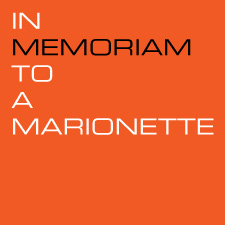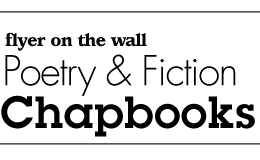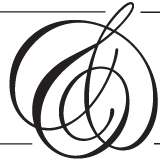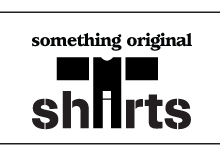
 |
Vol XLII, In Memoriam to a MarionetteDesmond Kon Zhicheng-Mingdé |
Desmond Kon Zhicheng-Mingdé has edited more than ten books and co-produced three audio books, two of which were anthologies. The other titles span the genres of ethnography, journalism and creative nonfiction, some edited pro bono for non-profit organizations including Sok Sabay Cambodia, Riding for the Disabled Association, and the National Volunteer & Philanthropy Centre. A former entertainment journalist, Desmond has traveled to Australia, France, Hong Kong and Spain for his stories, which have included features on Madonna, Björk and Morgan Freeman, culminating in the authorship of the limited edition Top Ten TCS Stars for Caldecott Publishing. Trained in book publishing at Stanford University, Desmond studied sociology and mass communication at the National University of Singapore, and later received his theology masters (world religions) from Harvard University and fine arts masters (creative writing) from the University of Notre Dame. His poetry and prose have appeared in more than a hundred literary journals. An interdisciplinary artist, Desmond also works in clay. He has designed and sculpted ceramic works to commemorate Albert Camus’ 50th Anniversary, the Dalai Lama’s 50th Year of Exile, Gerard Manley Hopkins’ 120th Anniversary, Edgar Allan Poe’s Bicentennial, and Grolier Poetry Bookshop’s 80 Years of Service as the Oldest Continuous Poetry Bookstore in the US, among other commemorative pieces. His ceramic works are housed in museums and private collections in India, the Netherlands, the UK and the US.
In Memoriam to a Marionette:
Caudate Sonnet of the Year Ad Interim
Why do I call this sense of disaffection a mood?
One reason is its continuity with impressionist atmosphere.
But the more important reason is the fact that the very
lack of distinguishing traits among the citizens here
pushes a viewer to ascribe some total condition that
pervades the scene….
We cannot name what keeps everyone within
this affective framework, but we know that they are all
caught in the same circumstance. And we need no names
in order to be possessed by the way the physical atmosphere
comes to seem continuous with the sense of pervasive
discomfort linking us to the agents in their uneasy passivity.
Charles Altieri
Vignette 024
Things were supposed to have perfected themselves on Utopia 11, a thrusting primal universe that existed on the generosity of a dying star, its death expected to buy the 113 sentient residents more time on adjacent terrestrial surfaces where light was bought in a cup. You peeled off a metallic cover and put your face over the top of it to bask in the warm glow. Or turn it on its side as a torch.
The residents only ever communicated within a tragicomic humor – light and effervescent, then tears-to-the-eyes stinging like cracking open a geostationary onion with the broad side of a meat cleaver. The trick was to keep the bulb under liquid, bring to a slow boil to let the sulfur dissolve and achieve a yellow viscous enough to be a light paint, soluble and near transparent.
Vignette 023
“I wish for a simpler life,” Resident 97 said. “Of eider duck down, and not these technical feats.” He swaddled himself in a beige towel blanket that was thin and soft like a breeze and yet provided warmth in layers.
Vignette 022
This wasn’t a statement of nuance, not more hubris, but a no-nonsense-straight-up-and-ruled-narrow categorical utterance. From The Observatory on the outpost in the deep south of The Weatherlies. The Observatory was an ode to the past, a square-patch abode that looked and felt like Thoreau’s hideout, its henna-colored myth now a fading mental picture, its cabin more conspicuous in the winter when the trees had shed their leaves, and its boxy profile cut through the evergreens, the spare forest of vertical lines. It was the snow that Resident 97 missed, the way it seemed to fall from somewhere no one could see, for no reason other than to turn everything into a duvet of wan waves, Walden Pond like the soft curves in one’s palm, the sun-line on it running in an opposite spray from below the ring finger, to still variegate, out into the other six webbed appendages, following unseen capillaries.
Vignette 021
Resident 97 scooped up the light from the vat he’d amassed through many saved cups. He would accumulate it for drinking, he told himself, and that would help relieve the pain of his dying body. Only Resident 97 knew of this, that in the right quantity, the light for all its metaphorescent strobic behavior would fill the holes riddled in his lanky body that had gone brittle and fragile, resistant to the outer limits only because The Observatory stood at a negative altitude, built along the ridgeline so low, the gravity kept his disparate parts and shapes together. He didn’t need much protective clothing either because even the wind bounced off his skin, as if desiring to touch the iridescent aura that had quietly formed along his edges. There were other physical alterations too, like eye color and how it shifted shades depending on where he looked, and how he was feeling. His hands seemed to be able to grasp bigger things, the objects somehow reducing themselves to accommodate him.
Vignette 020
“Nothing to fear,” Resident 97 murmured to himself, only once because that was all that was needed. But how does one grieve the passing of an epoch, especially one which one can barely remember?
No one knew of the splintering atmosphere of this place, a knowledge that would shatter everyone’s preconceived notions of what was right and assumed and possible and left fallow like the vast land just a quarter mile from where they’d always been.
Vignette 019
“Can’t we just stop and talk about this a bit?” Resident 53 said. “This is an old language, you know. For a kind of light our ancestors invented and reinvented and talked about a lot. Lumen gloriae or lumen gratiae?”
She said it with an awkward dragging out of the second words as if her slowing down gave them greater gravitas, made them lambent. She felt her tongue lick the top of her mouth, roll off it. That first, then the way she had to let her broadleaf-shaped tongue flap rapidly to form the grating in the other. She didn’t understand what she was saying, or whether the words and their meanings mattered when it came to the light, but she said it anyway because the sounds did an interstellar lilting of their own.
“What about al-Sadiq’s ideas?” Resident 23 asked. “That was an old language too.” There were springs and constellations and the forty derivative lights, how does one begin to explicate these things? What hope of understanding? Resident 23 brought her hand from above her eyebrows, down to the centre of her chest, then two fingers moving from right to left, to her heart.
Vignette 018
“There’s also this old notion of a particular morning in an endless sequence of trillions of mornings,” Resident 41 tried to remember, smiting his head with his right hand, then leaving it there. “The notion of Vayu, the air and how it moves, between being restless and evasive of its origination, its birthing. There was also that mantra in some Samhita.” It was a recounting, a night allowing itself the morning, how the light brought into relief hundreds of horses in an immense field, and how the russet hues removed violence in people. It was larger than a symbol, more fluid than any trope. It was a pointing, the mention of a path like something contextual yet ephemeral, cobbled together yet adrift.
Vignette 017
“Maybe they all scrape at the same thing like collinear points,” Resident 23 responded. “Maybe between prakasa and pratibha – brightness and flash of illumination – lies such a pleated distance, like a log bridge.”
Vignette 016
“I just have to see your numbing spectacle and exposition,” Resident 97 thought, gingerly lifting the flyaway fire from its cube and then, in one bold stroke, painting his immediate sky with it, so he looked right through the sponging as if it were a glass window. In it, he saw the other side, of the northern district growing old, its dilapidation more severe and the salt lakes now solidifying into a muddy, unworkable state. Over the hardening magma, a heavy rainfall of snow. Water crystallizing in mid-air, now trifoliate flakes. Maybe someone would know how to pray for the rolling plains. For the entire landform and its safe return.
Vignette 015
“Maybe the sleeping waterweeds will survive in this den with me,” Resident 97 said, “pretty up the air with its long buoyant leaves like ripples redirected to radiate out from the centre.”
Resident 97 had made of The Observatory a lived-in home for himself. For all its deliberate loneliness, it had gathered the romantic idyll of the house Rilke described in his Schmargendorf diary, “of the house that roses embrace ever more tightly, of the trees in bloom, of a tall fir and a yellow oriole that flew over it.”
“Perhaps this is what lumen naturae could have meant,” Resident 53 replied, indifferent to whether her insight added to the discourse. “The light of nature as if nature could reveal something more than itself,” she continued, “to point to something incomprehensible and unsayable, beyond even metaphor, isn’t that an interesting idea that’s at once propulsive and circumnavigating?”
Vignette 014
This was possibly the impending apocalypse everyone had heard about, which had become a seer’s bad word among the Hedoskeptics and Vicoccupians, their eight hundred theories of how time changes light and its movement never once explaining whether time could stop, completely stop the way you could close in on its behavior, fold your fingers into a fist like Hyperion and make light disappear. Or would the stopping of time be another illusion, the little things merely wispy and phantasmagoric, stashed away for a while.
Vignette 013
“All this light that contained themselves in neat ways and still managed to combine themselves to form a new compass,” Resident 53 said to Resident 97. “And what have we come to know about all of it? Next to nothing. Less than next to nothing. Maybe even a regression into something completely convoluted as if we were skirting a cube cornered in an eternal elliptical loop. We need an angle of entry into this, or we’ll never find the value of the integral that will get us out of this dystopian mess.”
Resident 53 said this while unwrapping the moving fractals that she had collected from across the Equivalocution Territories. There, they grew the most beautiful planes and curves from points on a line drawn into the floor. The growth amplification was astounding, a distension yet diffusion that hit out at the ceiling of the atmosphere.
Vignette 012
“All this light,” she said, “all this light like love waiting in the wings and on the proscenium stage.”
Vignette 011
“Love is like squaring a circle,” Resident 41 told Resident 97, “a flailing tail in red-flint fits like the poem said.” Resident 41 had said this as a loud interjection in mid-conversation, just days ago in the final moments before Resident 97 left for The Observatory. Love doesn’t ask why this, why the waltz, why the sky stopped its lights or dropped into the abyss under us like all the rest of our shared meanings and associative objects. Of affection and then disaffection, these.
Vignette 010
“Do you think love existed before time then?” Resident 97 asked on his way out the door, pausing at the threshold to look back at his childhood friend.
“Love just doesn’t ask these questions,” Resident 41 repeated in a housebound sigh. “If you don’t hurry, you’ll miss the Lacus Air Train. Track 17, at the second-to-farthest end.”
Vignette 009
Maybe such binomial talk was too sad because it reneged on all the promises the Residents had come to know and trust, even if these beliefs were nothing more than vapor in their eyes. It was easy for the Residents to believe in something theoretical, a construct of their own imagined universe, because the dualistic and concrete was always too easy to shatter on Utopia 11. The land didn’t shift, it positively fell from under you, so your new house would have to have been built like a Cubist’s Sphere, its corners and edges negotiating all the axes of the new gravitational bolts and pulls. There was no day, no night, no regularity, no charted times, no stock binaries and certainly no leaving the isthmus on which teetered their small livelihood and grandiose plans for permanent inhabitation. No one had hobbies anymore because their Cartesian ingenuity couldn’t transcend itself or past the object directly in front of them. No one slept because their eyes had no lids or avascular lashes, and had grown accustomed to the pain, of imbibing luminescence instead of letting it touch your skin, and share the air between.
Vignette 008
They would rot into compost heaps if they cleared new terrains for more of their own Salvifinite Dwellings, built to withstand the natural music of the planet conditions rather than work with it and help bring about its newness like making a shinier hazel from discarded sepia. It was the same breath-filled story of gasps, of a chic postcolonial sentiment that backfired through a revival of the same occupying tendencies, psychological and geographic and physical, all the time emotionally removed from the reality of loss, and the pain that came with it.
As it was, the glassiforms were already crumbling, into semisolids that couldn’t be digested. What more would ensue like the old myths rearing their stories from antiquity? A cascade of otologiors smashing at the atmosphere and abrading its already thinning lamina? The teleodontia cannibalizing other tetrapods for their polygonal scales and eggs?
Vignette 007
“What more after the color of night?” Resident 41 asked, walking off the flyloft onto a velvet curtain, allowing his body weight and swing to jerk it loose. What do we make of a different kind of light, that of jyotis and jneya, or the equanimity and self-possession that is upeksa?
Vignette 006
The pristine dunes that breathed the gaseous trees, the indigenous life forms like the perantulipus with its beta petals, and easy and twig-like gait. Both vanished on the same day, an internal collapse as if a vacuum within themselves sucked their being into negative space, or some other place that had become more tolerant and tolerable.
Vignette 005
There was a quiet hypocrisy in the way they said they married the land with everyone’s reasonable expectations. A kind of divine, divisive comedy. The better climate was only hearsay and inveigling talk, even in this smallest of diaspora aggregations. They had settled in the crater lake all those lifetimes ago. There, where refraction was greatest, they found the nature of their emotion. That their collective history was already an evaporating memory seemed immaterial, with next to nothing to pass down for a sense of continuity already taken as a fait accompli. Grim, somber, it was already done.
Vignette 004
Resident 97 took the onion and rubbed it against his lidless eyes. He wanted to cry with openness, to cry with the full, staggering pain of what it meant to cry. To truly weep. It wasn’t enough to say it from a life script anymore, to remove sentiment as if it were indecorous or imprecise. Resident 97 needed to let out the tears, and along with them, everyone’s solipsism. Into the outside, and let the salt do its work in the meantime.
Vignette 003
“Remember the pages torn from the old book? Of the monk? His name was Huaisu, if I remember correctly.” Resident 23 had mentioned this to Resident 97 once, both swimming in the kettle lake formed by the receding glacier. Maybe some of us are just a different kind of wanderer, like Huaisu’s paintbrush that became its own hand, the freed-up calligraphy finally draining itself in a resplendent outwash, of sand-colored light spots shaped like yellow topazes, his room filled with updrafts, rain, downwinds, then falling flowers and the snow again, the way Li Bai described it.
Vignette 002
“Maybe I’m content to be a part of this ideation, no more than artifice, and its unitive ambit its own enigmatic vista.” Resident 97 finally mustered this in a plain voice, an honest and clear adagio, to the light in the vat.
The image of Thoreau was murky but peaceful. A tall figure at the embankment with a pail, to collect some water. The grass rose to his height, and behind him were the old trees, and behind them, the stones that led up to the door to his house. And there, a quina wood desk and a pot over a warm fire. Everything was cast in lamplight the color of burnt sienna.
Vignette 001
It was never something Resident 97 was willing to bargain with, it wasn’t another agreeable premise or artfully disguised overture or gratuitous design. And it certainly wasn’t a formal surrender to beauty. It was merely a moment – of pleasure, and purchase. So in shedding his protective overalls and feeling his skin sink into itself, fall towards his bones, he stepped up two boxes, lifted the full weight of his body with his arms on the edge of the vat, and lowered himself into it, the light an invitation and bath of kisses. Against his going spirit. The curl and cresting, it was the autonomous motion of his most specific desire.
Acknowledgements
The epigraph is an excerpt taken from Charles Altieri’s book, The Particulars of Rapture: An Aesthetics of the Affects, in his commentary on the Edvard Munch painting Street Musicians.
Earlier versions of these vignettes have appeared in the following publications, to whose editors grateful acknowledgment is made:
Folly Magazine, Gone Lawn, Grey Sparrow, Psychic Meatloaf, Whale Sound




